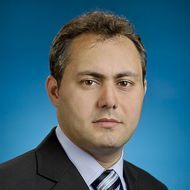HSE Develops Its Own MLOps Platform

HSE researchers have developed an MLOps platform called SmartMLOps. It has been created for artificial intelligence researchers who wish to transform their invention into a fully-fledged service. In the future, the platform may host AI assistants to simplify educational processes, provide medical support, offer consultations, and solve a wide range of other tasks. Creators of AI technologies will be able to obtain a ready-to-use service within just a few hours. Utilising HSE’s supercomputer, the service can be launched in just a few clicks.
Many researchers working in AI development lack sufficient experience in building web services, managing distributed computing resources, system administration, information security, and deployment process automation. SmartMLOps was created to help eliminate the need to learn additional technologies and to address issues of repeatability and reproducibility in machine learning experiments.
The project partners include the HSE AI Research Centre, the School of Software Engineering at the HSE Faculty of Computer Science, and the HSE Tikhonov Moscow Institute of Electronics and Mathematics (MIEM). Experienced and highly qualified HSE specialists are involved in the development and deployment of the MLOps platform.
According to the project lead, Hadi Saleh, the platform is already undergoing pilot testing. Its primary goal is to reduce the time and resources required to deliver product-level services. SmartMLOps ensures the necessary level of reliability, security, and transparency in the use of AI technologies. It allows developers to save time on non-core activities such as system administration, DevOps, and CI/CD. The platform provides a unified graphical interface through which users can create a repository with an AI module template, access models, a monitoring system, orchestrators, and the supercomputer, as well as track their services’ metrics and promptly address issues.
To create a multifunctional, user-friendly, and modern service, the platform’s developers tackled the complex challenge of integrating HSE’s cHARISMa supercomputer cluster into cloud computing. The platform is based on a microservice architecture, with the main component being a framework developed by the HSE AI Research Centre.

Hadi Saleh
‘The platform's functionality includes the creation, storage, versioning, training and fine-tuning of AI models; the deployment of ready-made models as product services with REST APIs; the construction of training pipelines; the monitoring of services and the overall state of computing resources; the ability to use data from HSE’s corporate information systems; and access to cloud storage and supercomputer resources. The framework itself and the first AI modules have already been deployed, and analytical dashboards for monitoring the platform’s status have been implemented. A special autoscaling technology was developed and introduced to save resources,’ said Hadi Saleh.
Unlike commercial solutions such as Amazon SageMaker or Google AI, SmartMLOps is primarily aimed at researchers and students at HSE. To gain access, they simply need to submit an application and await approval. Until the end of 2025, anyone interested may take part in the platform's pilot use.
A special ETL process was developed to securely extract and anonymise information from HSE’s corporate systems. This helps in analysing student behaviour and building predictive models, for example, to forecast career prospects.

Elena Kozhina
‘We expect that the implementation of the SmartMLOps system will mark a significant milestone in accelerating the development of AI-based services at our university,’ noted Elena Kozhina, Deputy Vice Rector and project curator.
At present, eight AI models have been deployed on the platform, and integration has been carried out with three of HSE’s corporate information systems. Two subsystems of the MLOps platform, developed with the involvement of specialists from the Faculty of Computer Science and MIEM, have been registered with the Russian Federal Service for Intellectual Property (Rospatent).

Sergey Lebedev
‘The development of such an ambitious and promising infrastructure project posed a considerable challenge and a timely necessity for the university. SmartMLOps enables the simultaneous solution of research, educational, and administrative tasks of various scales and levels. We managed to form a unique team of professionals and involve students and research assistants in the process,’ said Sergey Lebedev, Head of the School of Software Engineering at the HSE Faculty of Computer Science.

Anton Sergeev
Anton Sergeev, Director of the Centre for Software Development and Digital Services at HSE MIEM, emphasised that systematic work with AI models is impossible without MLOps platforms, which support the full lifecycle of models—from data import and cleaning to controlling the outcomes. ‘Such high-tech projects set a benchmark for AI leadership not only within our university, but across the country as a whole. They represent HSE’s scientific excellence in the form of a system that will assist ML specialists in applying AI models to a wide range of real-world problems,’ he said.

Pavel Kostenetskiy
Pavel Kostenetskiy, Head of the Supercomputer Modelling Unit, gave the service high praise. ‘The MLOps platform will make it easier for HSE researchers working in AI to access the ‘cHARISMa’ supercomputing cluster and will lower the entry threshold into high-performance computing. In a sense, HSE’s supercomputer will appear like a cloud within this MLOps platform, which many will find convenient,’ concluded Pavel Kostenetskiy.
See also:
HSE Scientists Optimise Training of Generative Flow Networks
Researchers at the HSE Faculty of Computer Science have optimised the training method for generative flow neural networks to handle unstructured tasks, which could make the search for new drugs more efficient. The results of their work were presented at ICLR 2025, one of the world’s leading conferences on machine learning. The paper is available at Arxiv.org.
Under a Blooming Magnolia: How Russian and Chinese Scientists Create Solar Cells of the Future
Schola continues to introduce the winners of the International Academic Cooperation competition. In today's issue, Professor Andrey Vasenko, Deputy Head of the Scientific and Educational Laboratory of Quantum Nanoelectronics at Tikhonov Moscow Institute of Electronics and Mathematics (MIEM), speaks about the joint project between his laboratory and the Peking University research team— ‘Engineering of highly efficient and stable perovskite solar cells.’
Neural Network Trained to Predict Crises in Russian Stock Market
Economists from HSE University have developed a neural network model that can predict the onset of a short-term stock market crisis with over 83% accuracy, one day in advance. The model performs well even on complex, imbalanced data and incorporates not only economic indicators but also investor sentiment. The paper by Tamara Teplova, Maksim Fayzulin, and Aleksei Kurkin from the Centre for Financial Research and Data Analytics at the HSE Faculty of Economic Sciences has been published in Socio-Economic Planning Sciences.
Larger Groups of Students Use AI More Effectively in Learning
Researchers at the Institute of Education and the Faculty of Economic Sciences at HSE University have studied what factors determine the success of student group projects when they are completed with the help of artificial intelligence (AI). Their findings suggest that, in addition to the knowledge level of the team members, the size of the group also plays a significant role—the larger it is, the more efficient the process becomes. The study was published in Innovations in Education and Teaching International.
Advancing Personalised Therapy for More Effective Cancer Treatment
Researchers from the International Laboratory of Microphysiological Systems at HSE University's Faculty of Biology and Biotechnology are developing methods to reduce tumour cell resistance to drugs and to create more effective, personalised cancer treatments. In this interview with the HSE News Service, Diana Maltseva, Head of the Laboratory, talks about their work.
Master’s Students of HSE, University of Campinas, and Tsinghua University Publish Joint Student Research Collection
Master’s students of the HSE ISSEK programme ‘Science, Technology and Innovation Management and Policy’ have released a joint research collection with the University of Campinas (Brazil) and Tsinghua University (China) titled ‘Being Innovative or Being on the Safe Side—Managing the Risk of Failure.’ The authors explore how organisations perceive risks and embrace innovation within different cultural contexts.
‘A Turn Away from Stereotypes’: Moscow Hosts ‘Researching the Deaf Community’ Conference
On October 17–19, 2025, the third annual interdisciplinary conference ‘Researching the Deaf Community 2025: on the Periphery of Attention’ took place at GES-2 House of Culture in Moscow. The event was organised with the participation of the HSE International Laboratory for Social Integration Research. HSE University Vice Rector Irina Martusevich addressed attendees at the opening ceremony.
Exploring the Mind: HSE Scientists Discuss Cognitive Technologies of the Future
Why we make irrational decisions, how the brain responds to fakes, and whether neural networks are capable of thinking—these were the topics discussed by early-career scientists of HSE University during the NAUKA 0+ science festival. The event brought together students and experts from various fields, united by a common goal—to deepen their understanding of the human brain and cognitive technologies.
HSE Researchers Assess Creative Industry Losses from Use of GenAI
Speaking at the IPQuorum.Music forum on October 15, Leonid Gokhberg, HSE First Vice Rector, and Daniil Kudrin, an expert at the Centre for Industry and Corporate Projects of HSE ISSEK, presented the findings of the first study in Russia on the economic impact of GenAI on creative professions. The analysis shows that creators’ potential losses could reach one trillion roubles by 2030.
International Dialogue on Urban Development: Dynamic Urbanism and Green Infrastructure
In September 2025, the HSE Faculty of Urban and Regional Development (FURD) hosted a delegation of leading scholars and urban development experts from China. Two seminars were held at the Shukhov Lab with the participation of Chinese colleagues: the first focused on green infrastructure, while the second explored the theme of dynamic urbanism. In addition, a meeting between the Chinese delegation and representatives of FURD took place at the university’s main building on Pokrovsky Bulvar. The participants discussed opportunities for expanding cooperation between universities and research centres.


